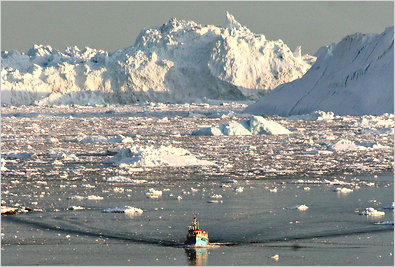


reviews [0] Global Warming [5]
For decades to come, we’re locked into generally rising temperatures, with shorter-term temperature shifts* — up or down — shaped most by natural variability in the system (as with the recent plateau in temperatures). But humanity, by acting in ways that blunt emissions of greenhouse gases, can significantly affect the rate of warming and other related conditions from mid century onward. That’s a time scale that people can reasonably understand. Energy and environmental policies being considered now can matter not just to great grandchildren, but to many global citizens alive today.
There is more robustness in several important conclusions this time. Most notably, the panel now says it is “extremely likely” (greater than 95 percent confidence) that most warming between 1951 and 2010 was human-caused. John Abraham and Dana Nuccitelli have a good column on this in The Guardian.
Seas will very likely (more than a 90-percent chance in panel parlance) rise at a faster rate in coming decades than they have from 1971 until this decade, the authors conclude. Similarly, the report finds, “It is very likely that heat waves will occur with a higher frequency and duration.”
The report touches on the “temperature hiatus” of the last 15 years, but notes (as in the graphic above) that the basic trend in warming is unrelenting when looked at decade by decade.
But the summary also acknowledges that studies assessing the extent of warming from a given buildup of greenhouse gases now give lower odds to the highest projections. As I wrote recently, the impact on hurricanes is less clear now than it was in 2007. That means it will serve any faction in the climate policy fight — providing uncertainty to be sprinkled by those seeking energy stasis and reasons for concern for those pushing for action.
The intergovernmental panel was established by the world’s governments in 1988 to assess factors contributing to climate change, its impacts on societies and ecosystems, and possible responses. I’ve been covering this issue since before the panel was created and, while I’ve criticized some of its moves — and some of its leaders — I agree with the climate science historian Spencer Weart that this work has been indispensable.
The finest product of the 25-year effort is not any particular report, but the trajectory of understanding of greenhouse-driven warming charted in the panel’s conclusions.










